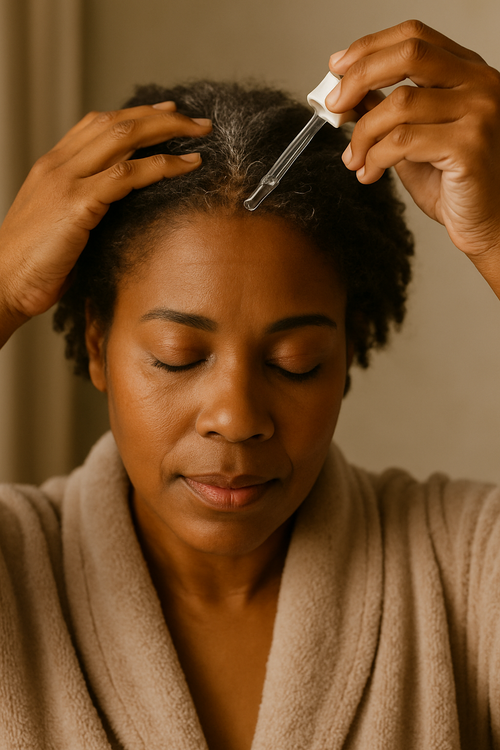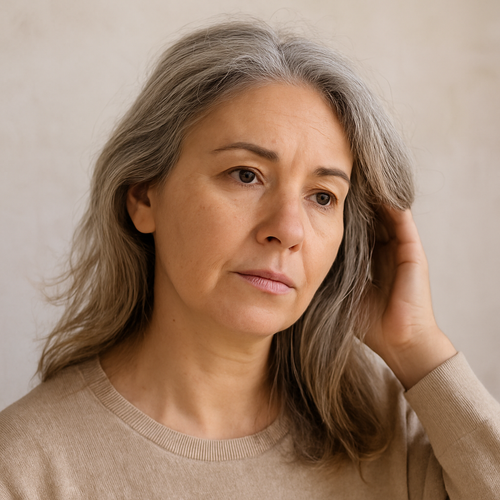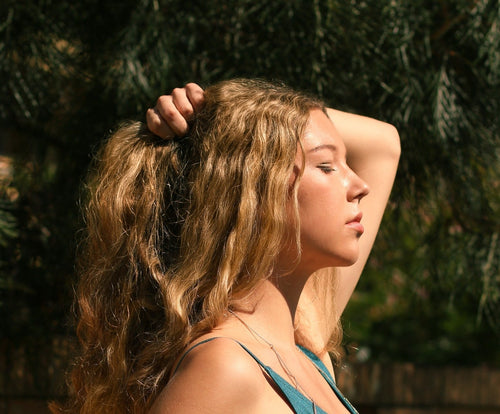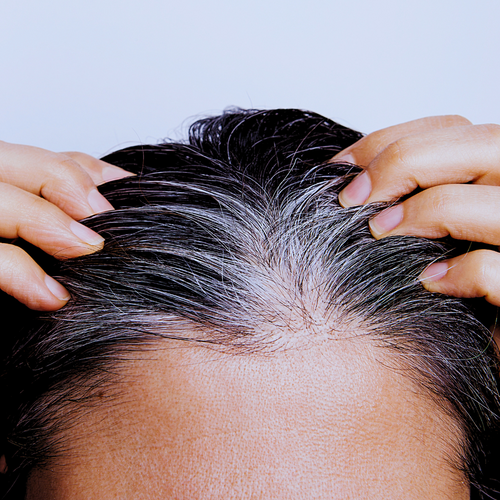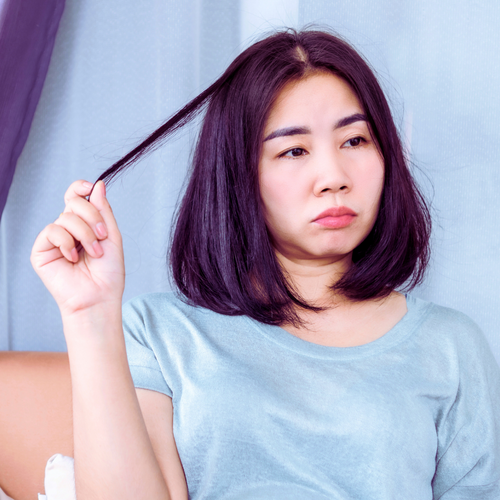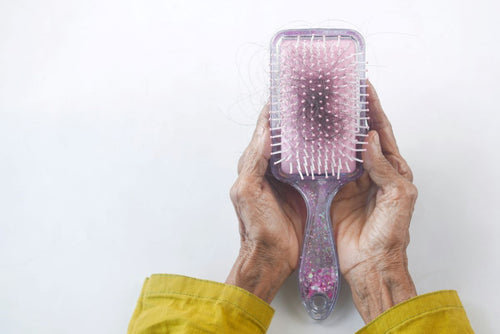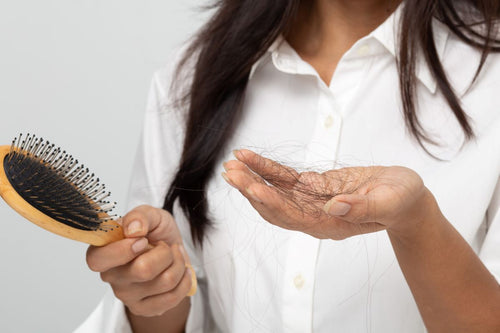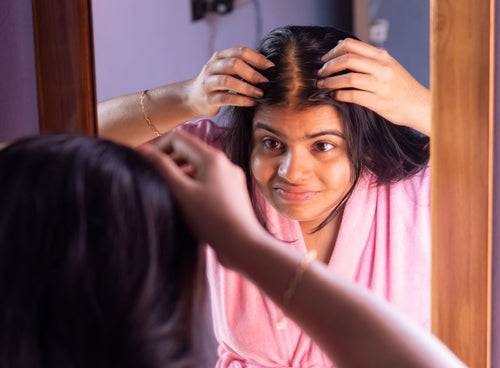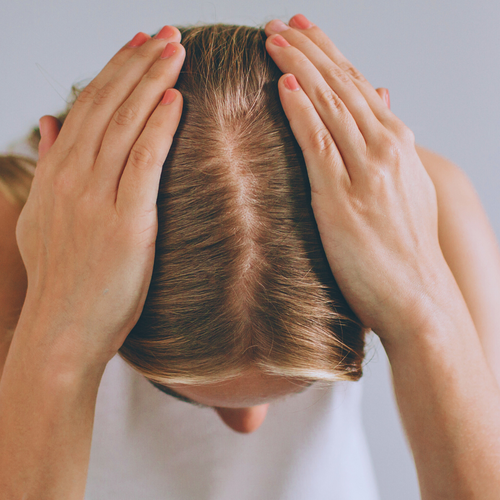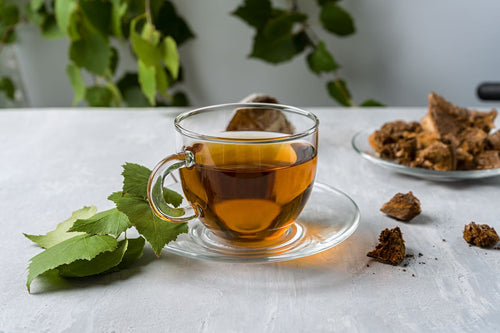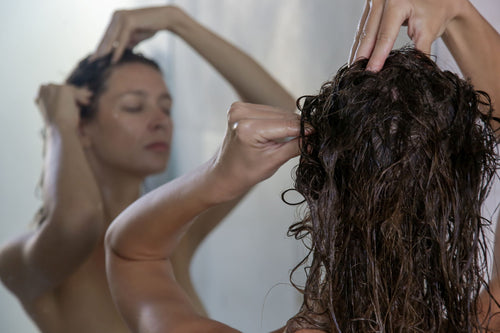In our modern, fast-paced lives, stress has become an inescapable companion, impacting both our mental well-being and physical health, including the health of our hair and scalp. This article will explore the relationship between stress and hair loss, shedding light on conditions such as hair thinning, dandruff, alopecia areata, and excessive hair shedding. Additionally, we’ll provide insights into effective stress hair loss treatments, using products designed to promote scalp health and support hair growth.
Understanding the Impact of Stress on the Hair and Scalp
Research has shown that chronic stress can disrupt the delicate balance of our body's systems, leading to an array of adverse effects on our hair and scalp. Stress triggers a hormonal cascade, releasing cortisol and other stress-related hormones, which can have profound implications for our skin and hair health, including hair loss, increased hair shedding, bald patches, dandruff, and scalp inflammation.
Dandruff
Flakes of dandruff not only hinder our confidence but can also be triggered by stress. When stress disrupts the delicate balance of the scalp, it may lead to an overgrowth of yeast and sebum production, triggering dandruff. Maintaining a healthy scalp environment through relaxation techniques, proper hair, and ayurvedic herbs that help promote balance can help keep dandruff at bay.
Thinning Hair
One of the most distressing effects of stress on the hair is hair loss and thinning. Stress-induced hair loss, known as telogen effluvium, can result in a significant shedding of hair. Chronic stress can trigger the release of hormones like cortisol, leading to disruptions in the hair growth cycle. This may result in hair follicles entering a resting phase prematurely, causing thinning of the hair.
Alopecia Areata
Alopecia areata, an autoimmune condition causing hair loss in patches, has been linked to stress as a potential trigger. The body's immune response may mistakenly target hair follicles during periods of heightened stress, leading to distressing bald patches.
Hair Shedding
Stress-induced hair shedding is a common phenomenon, often characterized by increased daily hair loss. Telogen effluvium, a condition triggered by stress, illness, medication changes, and other factors, can lead to a higher percentage of hair follicles entering the resting phase and subsequently shedding.
Effective Stress Hair Loss Treatments
To combat the detrimental effects of stress on hair and scalp health, consider incorporating the following recommendations:
1. Regular Exercise
Engaging in regular physical activity has been shown to reduce stress levels and promote overall well-being. Exercise improves blood circulation, which is crucial for delivering nutrients to the hair follicles. Incorporate activities like jogging, yoga, or even a brisk walk into your routine to enhance both physical and mental health.
2. Adequate Sleep
Prioritize quality sleep, as lack of sleep can contribute to increased stress levels and negatively impact hair health. During the sleep cycle, the body repairs and rejuvenates itself, including the hair follicles. Aim for 7-9 hours of uninterrupted sleep each night to support overall health, including your scalp and hair.
3. Adaptogenic Scalp Serums
Using an adaptogenic antioxidant scalp serum is an important way of defending against stress hair loss. Antioxidant scalp serums and oils are designed to nourish the hair follicles, combat stress, strengthen the roots, and improve scalp circulation. Ingredients like argan oil, baobab oil, and vitamin E work together to promote healthier, thicker hair.
4. Balanced Nutrition
Ensure your diet is rich in essential nutrients, including vitamins, minerals, and proteins, which are vital for hair health. Foods high in omega-3 fatty acids, such as fish and flaxseeds, contribute to a healthy scalp. Additionally, antioxidants found in fruits and vegetables can protect hair follicles from oxidative stress.
6. Stress-Reduction Exercises
Incorporate stress-reduction techniques into your daily routine, such as yoga, mindfulness meditation, deep breathing exercises, or progressive muscle relaxation. These practices can help lower cortisol levels and promote a sense of calm, positively impacting both your mental well-being and hair health.
Conclusion
In the pursuit of healthier hair and scalp, addressing stress is a crucial aspect. Stress is a silent assailant that can wreak havoc on our hair. By understanding the underlying mechanisms and recognizing the signs, we can take steps to protect our hair and scalp from stress-related damage. By incorporating stress-relief practices and utilizing specialized anti-stress beauty and wellness products, you can take proactive steps to mitigate the negative impact of stress on your hair.
Remember, a holistic approach that combines stress management and targeted hair and scalp care products is key to achieving optimal results. The synergy of both internal and external care is key to achieving optimal results. Self-care and stress management are not luxuries; they are essential components of a comprehensive approach to wellness.



